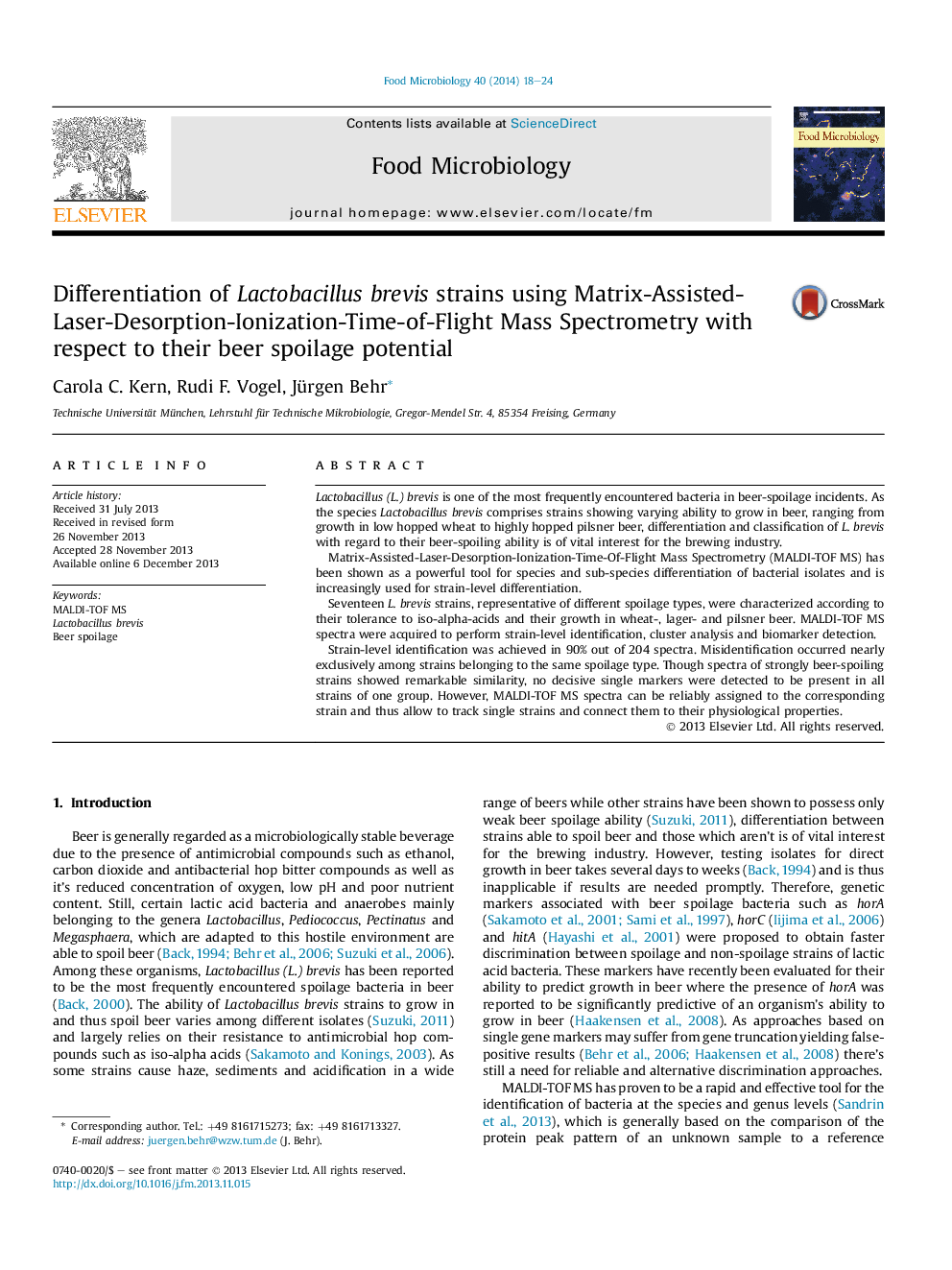| Article ID | Journal | Published Year | Pages | File Type |
|---|---|---|---|---|
| 4362815 | Food Microbiology | 2014 | 7 Pages |
•MALDI-TOF MS allows strain-level identification of Lactobacillus brevis strains in 90% of cases.•MALDI-TOF MS spectra of strongly beer-spoiling L. brevis show high similarities.•L. brevis can be differentiated along its beer-spoilage ability by MALDI-TOF MS.
Lactobacillus (L.) brevis is one of the most frequently encountered bacteria in beer-spoilage incidents. As the species Lactobacillus brevis comprises strains showing varying ability to grow in beer, ranging from growth in low hopped wheat to highly hopped pilsner beer, differentiation and classification of L. brevis with regard to their beer-spoiling ability is of vital interest for the brewing industry.Matrix-Assisted-Laser-Desorption-Ionization-Time-Of-Flight Mass Spectrometry (MALDI-TOF MS) has been shown as a powerful tool for species and sub-species differentiation of bacterial isolates and is increasingly used for strain-level differentiation.Seventeen L. brevis strains, representative of different spoilage types, were characterized according to their tolerance to iso-alpha-acids and their growth in wheat-, lager- and pilsner beer. MALDI-TOF MS spectra were acquired to perform strain-level identification, cluster analysis and biomarker detection.Strain-level identification was achieved in 90% out of 204 spectra. Misidentification occurred nearly exclusively among strains belonging to the same spoilage type. Though spectra of strongly beer-spoiling strains showed remarkable similarity, no decisive single markers were detected to be present in all strains of one group. However, MALDI-TOF MS spectra can be reliably assigned to the corresponding strain and thus allow to track single strains and connect them to their physiological properties.
